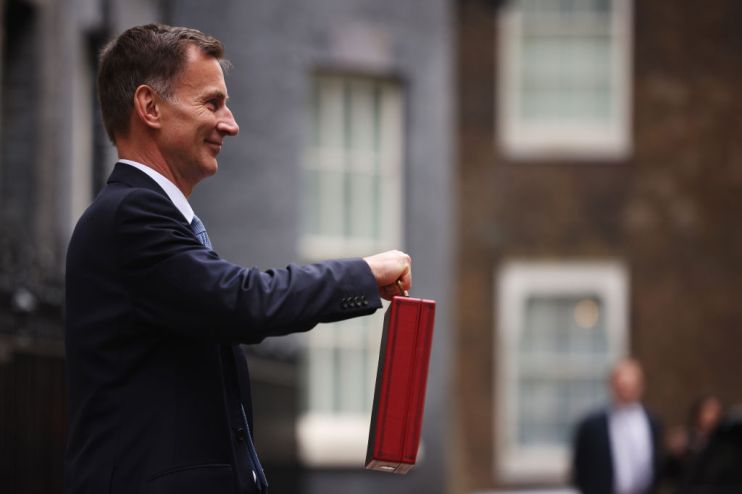UK borrowed record £16.7bn for February but Jeremy Hunt handed interest bill boost

The UK borrowed a higher than expected £16.7bn in February, a record for that specific month due to the government spending billions on helping families with the cost of energy bills, official figures out today reveal.
Office for National Statistics (ONS) numbers indicate Chancellor Jeremy Hunt’s decision to cap typical household energy bills at £2,500 pushed government borrowing nearly up £10bn compared with the same month last year.
The overall borrowing number is larger than the nearly £12bn analysts expected and marks a reversal from January’s surprise budget surplus.
It is also the highest number since records began in 1993.
“Borrowing is still high because we’re determined to support households and businesses with rising prices,” Hunt said today.
Governments borrow money when the amount they spend tops the amount of revenue they raise from taxes. Public finances are said to be in deficit in such situations.
He expanded access to free childcare, launched investment reliefs for businesses and scrapped the cap on lifetime tax free pension contributions.
While those moves will support families and workers, they have loosened the country’s purse strings. The Office for Budget Responsibility now thinks Hunt is meeting his key fiscal target – to get debt as a share of the economy falling in five years – by a margin of around £6bn, the lowest level of any Chancellor since 2010.
Analysts highlighted that stronger than expected tax revenues, mainly due to self-employed people paying two of the highest monthly totals for self-assessment payments in January and February ever, has handed Hunt some cash to play with through the year.
“We still think that the Chancellor might have a bit of money to play with in the next fiscal event in the autumn,” Ruth Gregory, deputy UK economist at consultancy Capital Economics, said.
She added the Chancellor could borrow nearly £30bn this month and still hit the OBR’s borrowing forecast of just over £150bn for this year.
Turmoil in the banking system that forced Swiss regulators to haul off Credit Suisse to rival UBS could choke the UK economy if banks response by reining in lending, Gregory added.
That chaos has also cast doubt on whether the Bank of England will hike interest rates for the eleventh time in a row on Thursday.
Others added a gap is likely to open up in the public finances for tax giveaways ahead of the next election despite the slim fiscal headroom.
UK debt-to-GDP ratio is back to levels last since in 1960s

“The main political question is whether the deficit closes sufficiently to allow the Chancellor a degree of tax largesse ahead of the next election. We suspect that somehow it will,” Investec analysts said.
UK public finances have rarely been in surplus since the Covid-19 crisis due to the government having to ramp up spending to cushion the economic blow from the virus.
Russia’s invasion of Ukraine had sent international energy prices on an upward spiral, forcing the government to step in to prevent a living standards catastrophe. Energy prices are now below invasion levels.
Those decisions have swelled borrowing, with the country’s debt to GDP ratio now nearly 100 per cent, the ONS said today, meaning the UK’s debt pile is close to the size of its entire economy.
Britain has been paying record levels of interest on its more than £2 trillion debt pile over the last year due to inflation reaching 40-year highs and the Bank of England hiking interest rates aggressively to tame it.
However, debt interest spending dipped to £6.9bn in February when compared to last year, although that number was higher than January.
A large chunk of the country’s debt stock is tied to the retail price index, an old measure of inflation, which has ballooned over the last year.